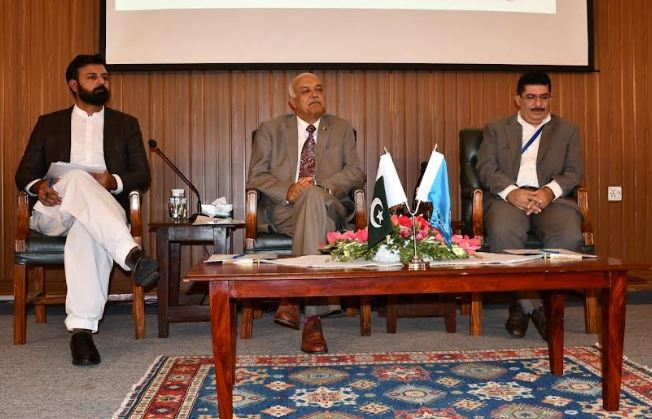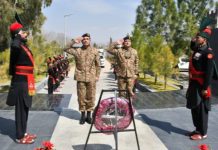ISLAMABAD, AUG 13 /DNA/ – At a discussion organized by the Institute of Regional Studies (IRS), on Glacial Lake Outburst Floods (GLOF) and their impact on northern areas of Pakistan, Dr. B. Sidney Smith, a climate expert from the US, said that we were passing through a civilizational decline which was rooted in unsustainable resource consumption. He said that there were no immediate solutions to tackle climate change consequences, adding that, adaptively was said to be the only option left. He stressed the importance of regional cooperation and solidarity.
Speaking on the occasion, Muhammad Ismail, Country Rep, Pakistan, at the International Centre for Integrated Mountain Development (ICIMOD) highlighted that impacts of Glacial Lake Outburst Floods (GLOF) on the northern region of Pakistan or in the Upper Indus Basin (UIB) was grave and need immediate attention. He said that due to the current flash floods and GLOF events in UIB, the out-migration occurred at a massive level. He added that the increasing frequency of GLOF in the northern region posed a significant threat to the region’s internal stability. Despite ongoing efforts by local governments, NGOs, and the armed forces, the scale of the challenges calls for urgent regional collaboration to protect this vulnerable climate hotspot.
Lt. Gen. (Retd.) Asif Yasin Malik HI (M) while recalling the 2010 floods, said that the flash floods were highly uncontrollable and had a long-lasting impact on the societies, and infrastructure. He quoted that the disaster of the 2010 flood had impacted over 24.6 million citizens, with significant loss of life and infrastructure. The military’s swift response, alongside governmental and international aid of USD300 million from the U.A.E, and helicopters from the U.S., facilitated the recovery efforts, he said. Gen Yasin underscored the critical need for proactive disaster preparedness and response mechanisms. Mr. Talha Tufail Bhatti from IRS suggested that the holistic approach encompassing the private-public partnerships with close collaboration and input from the societies at large was crucial to saving the seven million people living in GB and KP.

















